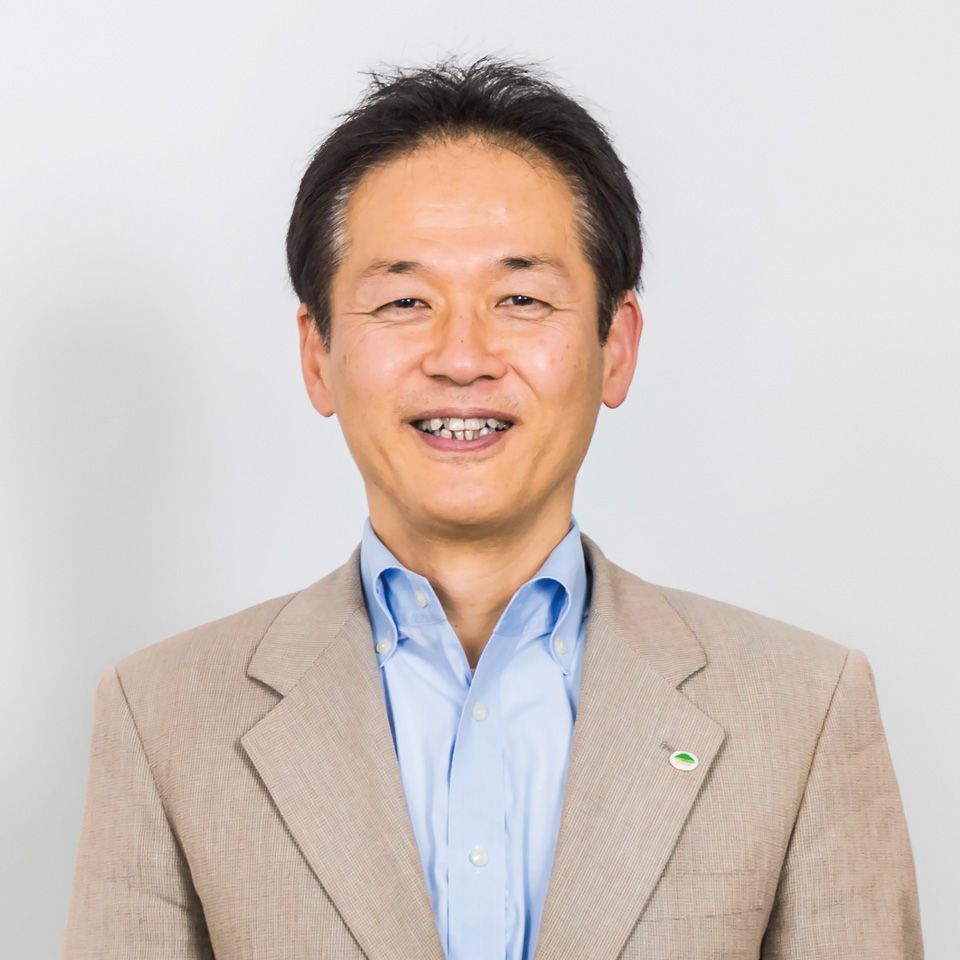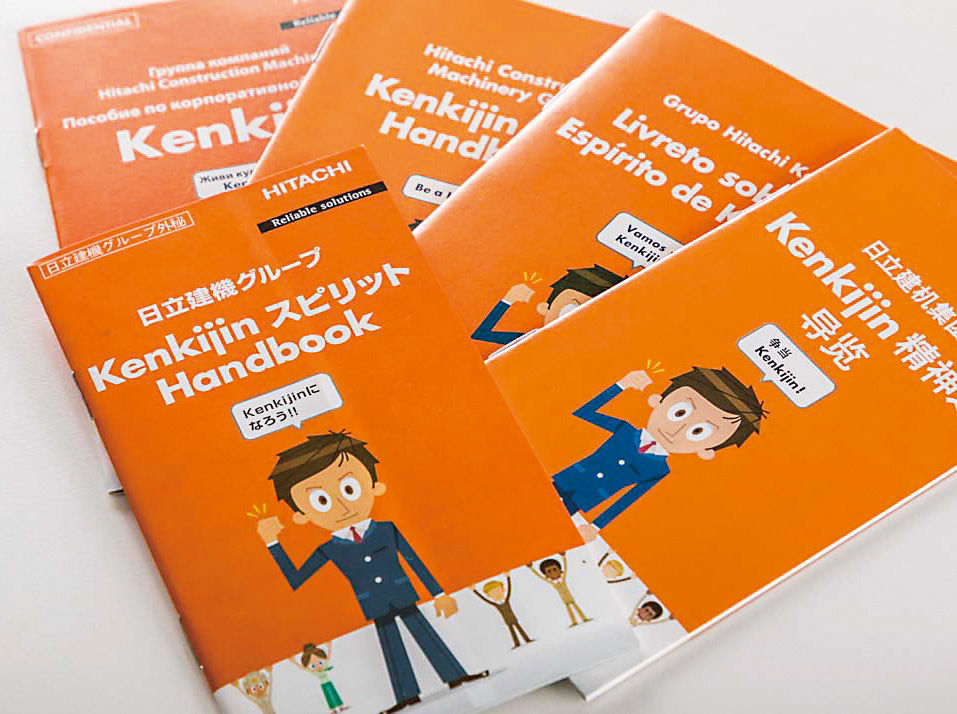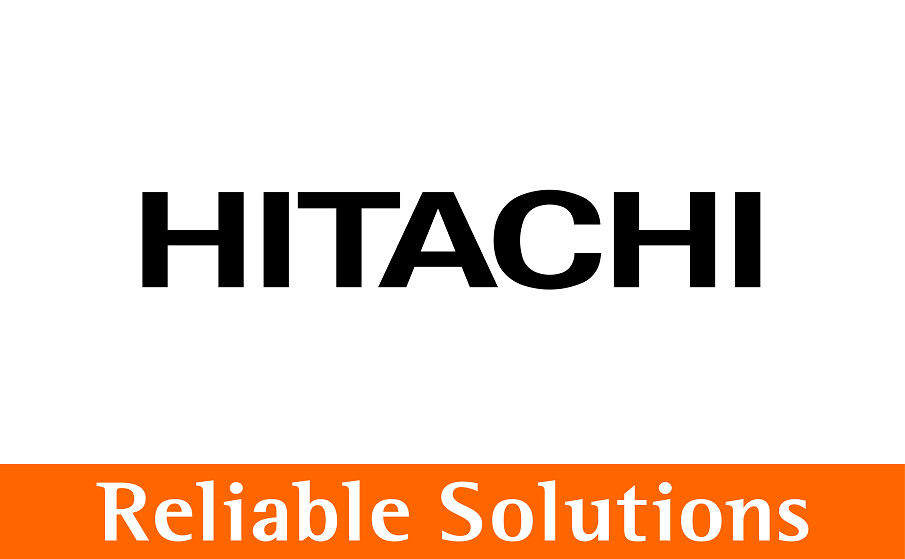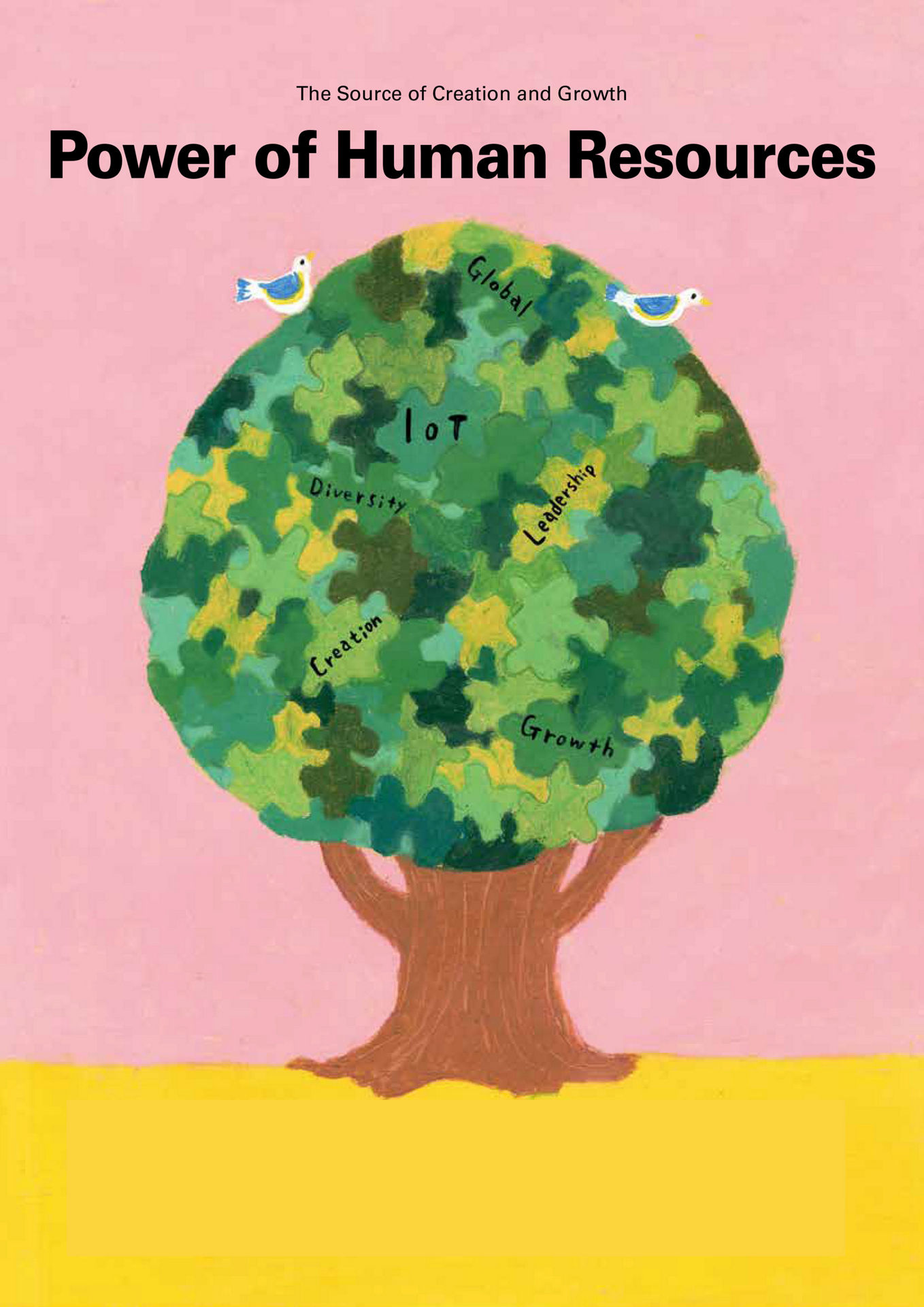Power of Human Resources
Power of Human Resources
Human resource development with a global standard, allowing each individual to experience growth and a sense of fulfillment
What is essential for improving business performance in these uncertain times is human resource who bring about reformation and innovation.
Let’s have a look at the systems at Hitachi Construction Machinery for cultivating such human resources.

Hisashi Fujiyama
General Manager, Human Resources Div., Human Capital Group

Shunichi Watanabe
Assistant Manager, Labor Relations and Employment Planning Sec., Global Human Resources Planning Dept., Human Resources Div., Human Capital Group
The environment around the construction machinery industry is currently undergoing great changes.
While interest in sustainability is rising and the trend to curb investment continues globally, operation time of construction machinery are getting longer. Amid these circumstances, Hitachi Construction Machinery is aiming to increase its profitability and efficiency by bolstering its value chain business and focusing on rental business, used-machine sales, and after-sales such as parts remanufacturing business, as well as evolve its structure to be more adaptable to change.
This is represented by the brand concept “Reliable solutions,” which expresses the ideal state of Hitachi Construction Machinery. We will continue to focus on our customers’ concrete issues of improving safety and productivity, and reducing lifecycle costs. Furthermore, we will provide ideas and services one step ahead of the competition a reliable partner to our customers. The foundation that supports this mission is still human resources.
The essential principle for allowing each individual to realize “Reliable solutions” is the “Kenkijin Spirit,” our shared values and code of conduct. On the basis of three keywords starting with C—Challenge, Customer and Communication, we endeavor to challenge ourselves as professionals without fear of failure, to consider what our customers truly need, and to act while trusting in our teamwork.
These 3 “C” keywords were defined by fleshing out and breaking down the concepts of each section of development, manufacturing, sales, services, rental business and corporate management. They are shared among all employees via the Kenkijin Spirit Handbook, and the arrangement allows everyone to connect themselves to their individual goals and achieve them. The Handbook is translated into eight languages, including English and Chinese, and plays a part in globally disseminating the Kenkijin Spirit to the entire Group.
Out of our 80 group companies, 73 are overseas, making global HR management a cornerstone of human capital strategy for Hitachi Construction Machinery, given that roughly 60% of its staff are local employees. Even during the COVID-19 pandemic, overseas sales account for over 75% of the total, showing the importance of the activities of our local staff in different countries.

In order to support their activity, we have been working on sharing our HR policies globally since the second half of fiscal 2020. We have introduced a global standard model for our HR management and development programs, which previously differed by country. The aim is to create an environment in which more diverse human resources can play an active role by optimizing the performance of the human capital and the corporate organization.
Hitachi construction Machinery is furthermore focused on the cultivation of future global leaders. Executive trainees who have been selected from various countries, primarily in their 30s and 40s, are invited to Japan to study management and various businesses for a year or two. It is expected that before long, more diverse executives will join global management, which will further strengthen cooperation across our group.
These human resource strategies form a system that also allows employees to feel that they can play an active role in the company and that they are being properly evaluated. This feeling of growth and sense of fulfillment will likely create fertile ground for various initiatives and innovations.
Beginning with the next page, we will showcase the comments of employees who keep challenging themselves to accomplish new value creation at Hitachi Construction Machinery.
Efforts for Improving Growth and Sense of Fulfillment
Cultivating local leaders with the Succession Plan

For us a global strategy means earnestly cultivating local managers at our overseas group companies. We are strongly conscious of localization, so that everyone can make the best effort with an approach appropriate for their region.

According to the succession plan, 72.2% of posts above the general manager class are expected to be local staff in 2023. We hold a meeting with the presidents of the Group companies every year, where we debate on how to cultivate leaders.
Promoting women’s careers

From a global perspective, the ratio between men and women in managerial positions is nearly the same (men: 14.2%, women: 13.8%). However with regard to only Japan, we find that there is a noticeable gap. One of our objectives is to bring the balance closer to the global standard. We have a full range of systems, including support for childbirth and childcare, so our challenge is to raise awareness of these systems within the company.

In order to foster a workplace culture in which women can play an active role, we held an exchange meeting for female employees. Based on the opinions expressed, a workshop was held with male managers who have female subordinates, and these opinions were utilized in the implementation of measures.
Evaluating the organization’s health through employee surveys

Each year we carry out an employee survey consisting of 50 to 60 questions, which helps reveal the points that need improvement. It is two years ago that we began promoting our human resource strategy with the present policies, and after just one year we got solid results as the satisfaction rate has visibly risen.

We also hold workshops for young employees to present improvement measures to executives on issues identified in the employee survey. Younger employees seem to feel a sense of openness, saying, “I am glad that the company is trying to reflect our opinions.”


